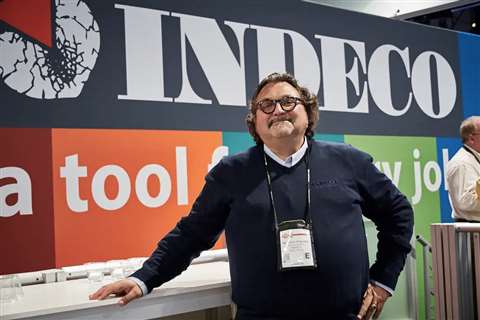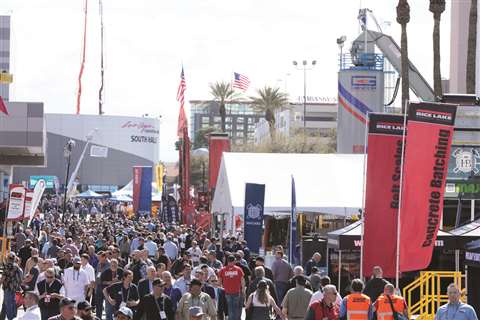Why the time is right for Italian manufacturers to attend ConExpo
06 March 2023
Italy’s construction equipment association, UNACEA, will be present at this month’s Conexpo, along with a larger contingent of Italian equipment manufacturers than ever before.
 UNACEA president Michele Vitulano. Photo: UNACEA
UNACEA president Michele Vitulano. Photo: UNACEA
The organisation’s president, Michele Vitulano, says it’s an important goal for UNACEA to help Italian companies achieve internationalisation, and North America is one of the strongest markets in the world, as well as being uniquely welcoming for Italian manufacturers.
As well as his position with UNACEA, Vitulano is the global sales and marketing manager with attachment specialist Indeco.
He says, “If we consider statistics, in terms of hydraulic attachments, the US has more than Italy, Germany, France, Spain and Portugal together.
“Maybe if we add the UK, we could equal the numbers, but not the marketing mix, because we are talking about bigger equipment in the US.
“In terms of turnover, it’s an important market and sometimes in Europe it’s so difficult because we sometimes have a ‘cultural war’ and preconceptions.”
Internationalisation
Vitulano believes it’s an important goal for UNACEA to promote Italian interests within overseas markets, especially when it comes to the ambitions of smaller companies.
He says, “Clearly Conexpo will be the biggest event to achieve this goal and the roll of the Italian trade agency and [Italian] ministers is important, even [for companies that are] not members of UNACEA.
“Internationalisation will help the Italian companies that we said before are medium and small sized to have a bigger market to present their products. Most of them make niche products and need to find a bigger market to be successful.”
 Vitulano says a large contingent of Italian manufacturers will attend this year's ConExpo. Photo: ConExpo
Vitulano says a large contingent of Italian manufacturers will attend this year's ConExpo. Photo: ConExpo
With his firm Indeco, Vitulano has been operating in the US market since 1990, and says, “I would like to use my experience to help the Italian industry to come out from our own smaller country and be successful.
“We will see much more Italian companies than in the past, because the North American market – if we see the statistics – confirms its importance for the Italian construction machinery industry.
“For Italy, USA and Canada are the second destinations, geographically speaking, after our neighbours, France, for Italian exported hydraulic attachments.”
Vitulano also speaks of a “special relationship” between the US and Italian industries, which is “ongoing and is becoming stronger and stronger. This is why I expect very strong participation.
“I always say that US still represents the only land of opportunities around the globe, because it’s a huge market, and they don’t have any preconceptions – and Italian technology is well accepted.”
On the question of fuel
Vitulano also discussed the debate about electrification and alternative fuels for construction equipment, saying, “We should always keep in our mind the evaluation of the lifecycle of the machine and not only the fuel or the force that drives the engine.
“If we support only one of the available technologies over another, without a deep analysis of the current and the future context, that could lead to non-optimal results.
“Moreover, from a political point of view, I believe it’s necessary for the public authorities to recognise the effort that our industry has made over the last decades to comply with engine stage legislation.
“We have obtained such results – for example, 96% less NOx, or 97% less PM (particulate matter), comparing a Stage V machine with a Stage I, and those are facts.
“Those technologies are widely available on the market and making the latest technology mandatory on a construction site will make a fundamental goal of sustainability quite easy to achieve.
“But still very far to achieve in many other countries, where they don’t have that kind of sensibility on sustainability matters.
“On the other hand, investing in electric [machines] and seeking alternative solutions, should represent an important parallel way, without any extremisms or potentially dangerous leaps forward.
“The equipment that we produce today, in addition to polluting much less, are much more efficient and effective.
They greatly reduce the execution time for the job and, with any kind of job we are going to do, road, bridge, the timing is much less, which contributes to net zero.”





